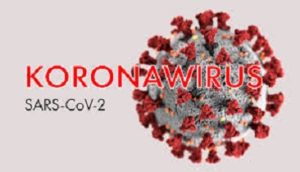Testing implications
The study enrolled the 1,848 recruits from May 12 to July 15, 2020, with 40 study participants not returning for the follow-up.
The participants filled out a questionnaire requesting demographic information such as age, sex, ethnicity, race, place of birth, and country of residence. They also provided information about risk factors for COVID-19, any symptoms within the previous 14 days, and a brief medical history.
Of the study participants, 90.5% were male, 25.1% identified as Hispanic, 14.7% identified as Black, 7.2% were born outside the United States, and 83.5% were 18–20 years old.
The researchers performed serum antibody tests and nasal swabs for qPCR testing at baseline and on days 7 and 14, and they reported any symptoms that had occurred during the previous week. Recruits who tested positive were isolated. Otherwise, participants and nonparticipants all followed the same safety measures.
For the recruits who tested positive, scientists also analyzed their viral genetic material to identify transmission and outbreak events.
The researchers found that 105 of the 1,813 participants who underwent antibody testing at enrollment had SARS-CoV-2-specific antibodies.
The 16 participants each reported no exposure to anyone with flu-like symptoms, had quarantined at home for 2 weeks prior to arrival, experienced no respiratory distress, and had not visited a healthcare facility in the past 14 days.
Of the 1,801 participants who had tested negative at enrollment, 24 tested positive for the virus on day 7, and four of this group had positive antibody results at baseline. Eleven tested positive on day 14, and none of this group had received positive antibody results at baseline.
Only 9.8% of the participants who tested positive at any time had experienced COVID-19 symptoms in the previous week.
At the end of the quarantine, 26 of the 1,554 nonparticipants tested positive for COVID-19. Overall, 31.2% of participants and nonparticipants who tested positive had a roommate with a SARS-CoV-2 infection.
The study did not identify any SARS-CoV-2 infections through qPCR testing performed due to daily symptom monitoring.
“This is a difficult infection to suppress in young people, even with close supervision of their mask-wearing, social distancing, and other mitigation measures. We find that regular testing not dependent on symptoms identifies carriers who can transmit SARS-CoV-2,” explained study co-author Dr. Stuart Sealfon, a professor of neurology at the Icahn School of Medicine.
The trial also identified six transmission clusters among 18 individuals by analyzing 36 SARS-CoV-2 specimens from 32 participants.
Honoratus van Bakel, Ph.D., a study co-author and assistant professor of genetics and genomic sciences at the Icahn School of Medicine, elaborated, “Identification of six independent transmission clusters defined by distinct mutations indicates that there were multiple independent SARS-CoV-2 introductions and outbreaks during the supervised quarantine.”
“The data from this large study indicates that in order to curtail coronavirus transmission in group settings and prevent spillover to the wider community, we need to establish widespread initial and repeated surveillance testing of all individuals, regardless of symptoms,” he stated.
The trial’s results may inform strategies for mitigating the transmission of SARS-CoV-2 and slowing the pandemic in the U.S. and globally.
“We hope this information helps in developing more effective measures to keep military installations and schools safe,” said Dr. Sealfon.
It is worth noting that the Centers for Disease Control and Prevention (CDC) still recommend interventions such as regularly washing the hands, wearing face coverings in public, and social distancing. These are instrumental ways to protect against the infection.
Also, it is worth noting that while 2% of the Marines did test positive after joining the supervised quarantine, 98% did not — and this study cannot tell us what the infection rates would have been if such rigorous safety measures had not been in place.
Andrea
Covid-19 Expert




